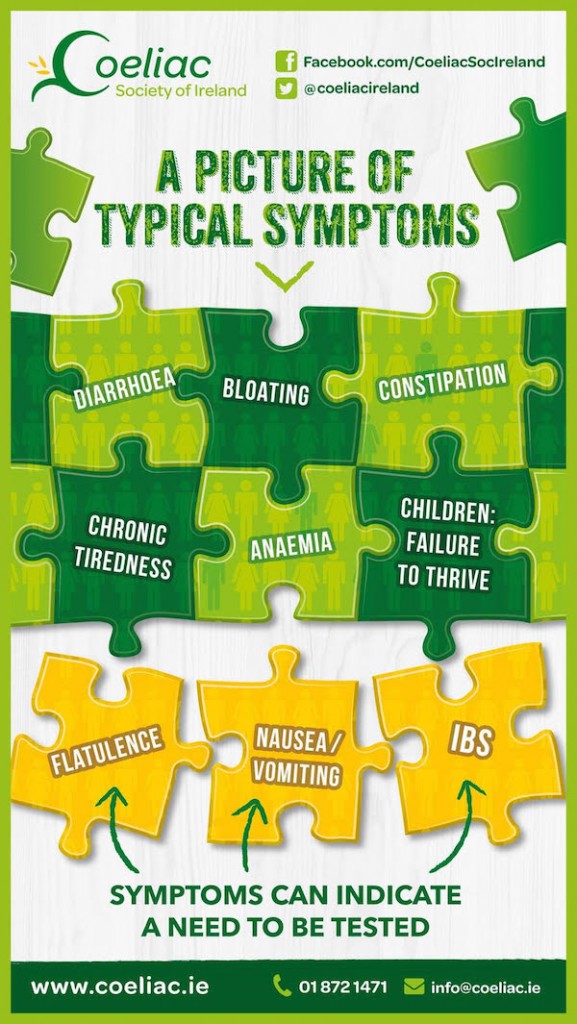 DD HEALTH: Around 46,000 people in Ireland are estimated to suffer with coeliac disease – one in every hundred, according to the Coeliac Society of Ireland.
DD HEALTH: Around 46,000 people in Ireland are estimated to suffer with coeliac disease – one in every hundred, according to the Coeliac Society of Ireland.
The Society is also concerned because there is a high rate of misdiagnosis and hopes to raise awareness of the signs and symptoms of the disease.
It is set to hold its AGM today in Dublin.
The Society also hopes to highlight the less well-known symptoms of the disease such as mouth ulcers; infertility; anaemia and a failure to thrive in children.
A range of events took place nationwide to mark an awareness week and a “Get Out and About” campaign will also see local coeliac support groups embark on family-friendly walks in three locations around the country on Sunday, 15 May (Russborough House in Wicklow, Glasson in Westmeath, and Limerick City).
This auto-immune disease prevents those affected from digesting gluten, a protein found in wheat, barley and rye.
It can manifest itself at any stage in a person’s lifetime, with symptoms including abdominal pain, recurring mouth-ulcers, weight-loss, vomiting and diarrhoea.
According to the society’s CEO, Grainne Denning, if people think they have the disease or a gluten intolerance, ‘it is absolutely essential that they get a confirmed diagnosis’.
However, she noted that misdiagnoses are common. A survey of the society’s members revealed that 42% of those with coeliac disease had been misdiagnosed before receiving a confirmed diagnosis.
Furthermore among those with a confirmed diagnosis, 39% had to wait for over a year for that diagnosis, 12 % had to wait over five years, while 11% were left waiting 10 years or more to be diagnosed.
These figures were highlighted at the launch of Coeliac Awareness Week, which runs until May 15.
According to Ms Denning, increased public awareness of this disease is needed if the high rate of misdiagnosis is to be tackled.
She explained that the only treatment for coeliac disease is to follow a gluten-free diet.
She said: “While some people choose to eat gluten-free simply because they think it’s a healthier lifestyle, those with coeliac disease must do so or they will suffer serious health consequences and severe pain. This does not mean, however, that those with coeliac disease have to miss out on tasty food.”
She said that one of the aims of Coeliac Awareness Week was to show those affected that eating gluten-free foods ‘does not need to be restrictive’.
For more information visit the website www.coeliac.ie.
Tags:






